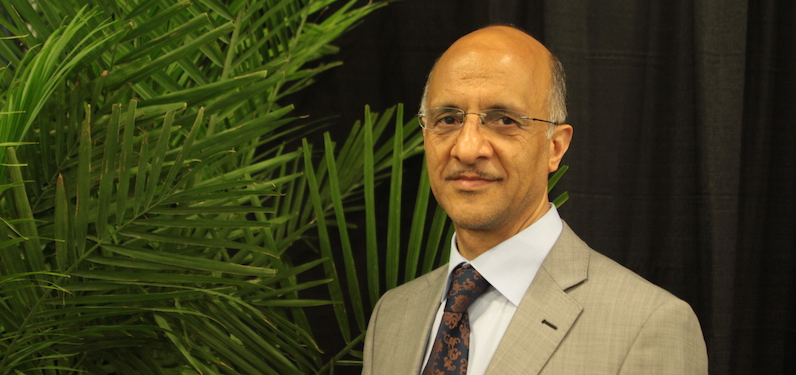OB: Afghanistan has a higher education system which has deep roots from the beginning of last century, with the establishment of Kabul University, which was one of the prestigious universities. Kabul University and five others were developing very steadily up until the 1980s and got very good reputations.
“Regarding quality,in the context of Afghanistan, we began from zero”
Unfortunately, the long-lasting war in Afghanistan caused many casualties and one of those is higher education. In 2002, when the democratic regime came in, our higher education system was in ruins. Many of our prominent professors and members left Afghanistan and the teaching infrastructure was completely destroyed. So during the last 12 years, after the collapse of the Taliban regime, we’ve made tremendous achievements.
The PIE: How have you rebuilt over the last 12 years?
OB: We can generally classify our achievements in two areas: up to the introduction of the national higher education strategic plan, and afterward.
During the first period, mainly our achievements were responsive to the crucial need of the post-war situation, answering urgent problems in a very chaotic manner.
Then, in 2009, we introduced the national higher education strategic plan based on the Afghanistan national development strategy. Enhancing education outcomes and accelerating human capital accumulation are the focus of our education and higher education systems through two goals: access and quality.
We’ve made tremendous achievements in access – you may know that during the long-lasting war in Afghanistan, especially during the Taliban regime and before the civil war during the Mujahideen regime, many females and many of the younger generation, including males, were in a bad situation where they were not able to attend university. And during the Taliban they banned any activities for females, so the last 12 years were characterised by a very strong motivation to admit them to higher education institutions.
“We’re trying to engage with foreign providers and foreign investors in Afghanistan”
Regarding quality, you know that it’s a multidimensional issue, especially in the context of Afghanistan – we began from zero. Our focus is on certain pillars on quality: one is faculty enhancement; the second is the rationalisation and strengthening of governance; then curriculum revision and revising the objectives of higher education based on the needs of the Afghanistan labour market. Finance is another issue in this regard. And finally, introducing quality assurance and accreditation.
We’ve made improvements in all those areas, but in spite of all the progress, there is a long way to go to reach all our goals to make higher education responsive to the needs of economic growth in Afghanistan.
The PIE: How many HE enrolments do you have?
OB: The total enrolment in public higher institutions is around 170,000 students. In private it’s around 130,000.
The PIE: Are the private institutions foreign institutions?
OB: There are foreign institutions and national as well. We have the American University of Afghanistan; there are some Iranian universities.
The PIE: What are the government regulations in terms of private providers?
OB: One of our achievements is the very sound and realistic legal framework we’ve built for higher education, including private higher education. So because what we have inherited is a closed, centralised system of higher education, our goal is to transform it into a diversified, responsive, merit-based and relatively flat system. We’re trying to engage with foreign providers and foreign investors in Afghanistan
The PIE: What are the benefits you think Afghanistan can give to foreign private providers?
Related articles




It is an interesting to know about the achievemnts in higher education of Afghanistan.
I as an original Afghan from France appreciate the PIE for this inteview.
Regards
It is very interesting to know about the progresses in Higher Education of Afghanistn.
Thanks to PIE